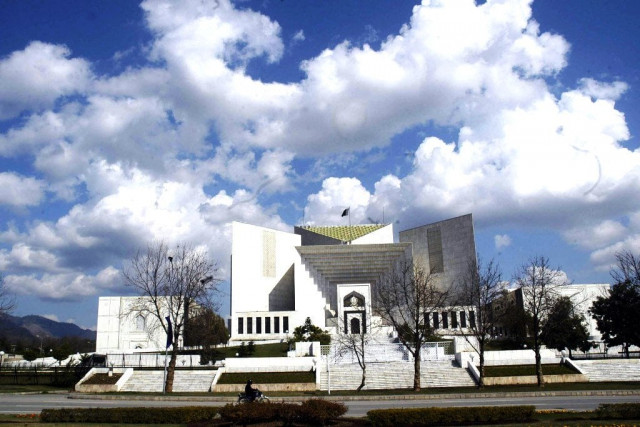Redrawing constituencies: Court rebukes ECP for not implementing order
ECP lawyer says delimitation can’t be carried out without fresh consensus.

ECP lawyer says delimitation can’t be carried out without fresh consensus.
The Supreme Court observed on Saturday that the Election Commission of Pakistan had not placed on record reasons why Karachi’s electoral constituencies had not been re-drawn in compliance with the court’s earlier orders.
“The Constitution ought to have been interpreted to meet all situations,” observed Justice Khilji Arif Hussain, a member of the bench which concluded four-day proceedings of the Karachi suo motu implementation case at the Karachi registry.
Justice Khilji also wrote an additional note while dismissing an application by the ECP seeking the deferment of the Supreme Court’s order regarding delimitation of constituencies, till the next general elections.
The judges stated that the court ordered the delimitation of Karachi’s constituencies to avoid political polarisation and to break the cycle of ethnic strife. Such observations, they added, have to be read in the context of the deteriorating law and order situation of Karachi.
The ECP lawyer, Munir Paracha, had argued that the delimitation process could not be carried out without a fresh census, adding that there was a constitutional embargo on the ECP to undertake such an exercise.

Justice Khilji, however, observed that the constituencies needed to be divided with regard to the distribution of population in geographically compact areas. Justice Khilji observed that “to have a true democratic government to represent the will of the people, it is necessary that each citizen be allowed to exercise right to vote freely, which is not possible unless territorial constituencies made having regard to the distribution of population in geographically compact areas, existing boundaries of administrative units, facilities of communication and public convenience and other cogent factors to ensure homogeneity in the creation of the constituencies.”
He said the Supreme Court had not called for an increase of National Assembly seats in Karachi or any other part of the province. “What has been directed is only delimitation of constituencies in accordance with the law in light of various observations made by this court,” Justice Khilji observed.
He said the ECP had claimed that the delimitation of constituencies could not be undertaken till a fresh census, which, he added, was “unfounded.” “On the other hand, the ECP stated that this exercise could not be undertaken as elections are likely to be held or in other words, the ECP has not disputed that the present constituencies need delimitation to bring them within the ambit of Article 51 of the Delimitation of Constituencies Act.”
He further stated that the ECP made such statements during the course of arguments but did not place any material on record giving their reasons for not complying with the court’s order.
“Therefore, in absence of such material the ECP request could not be entertained,” he noted.
The bench observed that the plea for postponement of the process of delimitation is, prima facie, sheer lack of will and commitment on part of the commission.
The judges noted that the “grounds urged by the ECP for avoiding, delaying or postponing the implementation of the court order regarding delimitation of the constituencies in its letter and spirit are entirely misleading, misconceived based on wrong legal notions and without any substance.”
Adjourning the matter till the next session, the bench directed its office to re-list the case when the suo motu implementation case would be taken up again.
Published in The Express Tribune, March 3rd, 2013.


















COMMENTS
Comments are moderated and generally will be posted if they are on-topic and not abusive.
For more information, please see our Comments FAQ